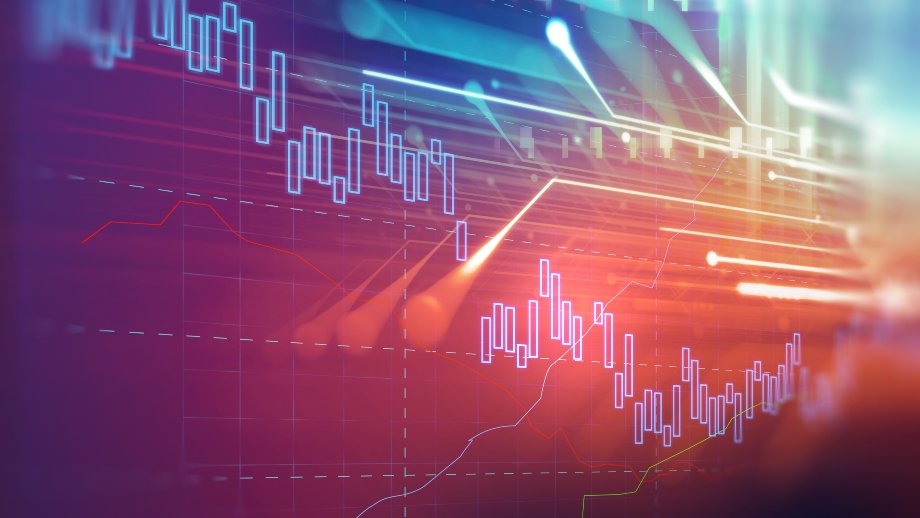Forex Analysis, How to improve your trading prospects
Forex Analysis, How to improve your trading prospects
And rather than admitting their mistake, and closing the trade, there and then. They let it run, having convinced themselves that it will come good.
-

- by ALLFOREXRATING.COM
- 12th June 2022 | Post Views: 1312

In my articles, I try to educate readers and give them pause for thought, a reason to take a step back and put on their thinking caps.
I do this because the ability to think about your response rather than just acting instinctively or instantly is a key part of making a success of trading.
And that’s never truer than at the start of your trading career.
All too often newbie traders make irrational (emotional) decisions that can cost them dearly.
Trading from the hip rather than from their trading plan, snatching at profits and worst of all running losses.
We see it time and time again an eager new trader makes a rash trade or jumps the gun, and they soon find their P&L is offside.
They suddenly feel under pressure, especially if they haven’t right sized the trade (i.e. they have overtraded).
And rather than admitting their mistake, and closing the trade, there and then. They let it run, having convinced themselves that it will come good.
The story usually ends with a loss, and a big one at that, which may represent a substantial chunk of their initial trading capital.
Sadly, the story may not finish there, because now they dislike themselves.
They realise they have acted rashly, and they want to try and correct that behaviour.
Yet rather than reverting to basics, they often rashly jump back into the market once more, determined to win back their loss, with all too predictable results.
If any of that sounds familiar to you don’t feel bad because you are not alone.
Nearly everyone on the planet will have acted irrationally and have made poor choices where risk and financial gain or loss are concerned.
I say nearly everyone because there are a group of people who don’t act in this way or at least that try very hard not to.
These people are acolytes of behavioural science/behavioural economics.
Disciplines that analyse why we act the way we do, and, what we can do about that.
And in some cases, how that behaviour can be exploited.
The study of decision making around risk and financial reward is not a new thing; it can trace its roots back to the 1930s.
But the studies that were conducted then assumed that individuals always act rationally, that is in their own interests, or, in the interest of others or the whole group.
This approach is known as game theory.
But it wasn’t until the late 1970s that psychologists started to look at how we actually respond under pressure, rather than using an idealised view of our reactions.
Work by two Israeli scientists, Daniel Kahneman and Amos Tversky created a new way of looking at and understanding our behaviour around financial decision making and stress.
That work became known as Prospect Theory and it won a Nobel prize in economics.
Prospect theory said this:
Human beings are very poor at mentally modelling risk, reward and certainty.
Particularly if a decision needs to be made quickly.
And because of this inability to think on our feet, we often make the “wrong” decision.
When humans are faced with a series of risky choices or outcomes, which have varying degrees of certainty. We often choose an outcome which is less beneficial (profitable) for us but which has a higher degree of certainty.
That’s compounded by a tendency to place higher importance on low probability events and lower importance on high probability events.
Basically, as species, we are a very poor judge of risk and reward and have a limited ability to quickly weigh up probabilities or calculate the likelihood of any of a particular set of possible outcomes.
In a nutshell, where making money is concerned, we often don’t act in our own best interests.
That doesn’t sound like a great recipe for successful trading, does it?
And it goes some way to explaining why many new traders blow up their accounts almost before they get started.
So next time you are faced with a decision that involves monetary loss or gain, and which has a series of potential and variable outcomes.
Why not take a step back, put on your thinking cap and think logically and not emotionally about how to proceed?
Doing that one simple thing could greatly improve your trading prospects and outcomes.
Write a Comment
Forex Analysis, How to improve your trading prospects
And rather than admitting their mistake, and closing the trade, there and then. They let it run, having convinced themselves that it will come good.

In my articles, I try to educate readers and give them pause for thought, a reason to take a step back and put on their thinking caps.
I do this because the ability to think about your response rather than just acting instinctively or instantly is a key part of making a success of trading.
And that’s never truer than at the start of your trading career.
All too often newbie traders make irrational (emotional) decisions that can cost them dearly.
Trading from the hip rather than from their trading plan, snatching at profits and worst of all running losses.
We see it time and time again an eager new trader makes a rash trade or jumps the gun, and they soon find their P&L is offside.
They suddenly feel under pressure, especially if they haven’t right sized the trade (i.e. they have overtraded).
And rather than admitting their mistake, and closing the trade, there and then. They let it run, having convinced themselves that it will come good.
The story usually ends with a loss, and a big one at that, which may represent a substantial chunk of their initial trading capital.
Sadly, the story may not finish there, because now they dislike themselves.
They realise they have acted rashly, and they want to try and correct that behaviour.
Yet rather than reverting to basics, they often rashly jump back into the market once more, determined to win back their loss, with all too predictable results.
If any of that sounds familiar to you don’t feel bad because you are not alone.
Nearly everyone on the planet will have acted irrationally and have made poor choices where risk and financial gain or loss are concerned.
I say nearly everyone because there are a group of people who don’t act in this way or at least that try very hard not to.
These people are acolytes of behavioural science/behavioural economics.
Disciplines that analyse why we act the way we do, and, what we can do about that.
And in some cases, how that behaviour can be exploited.
The study of decision making around risk and financial reward is not a new thing; it can trace its roots back to the 1930s.
But the studies that were conducted then assumed that individuals always act rationally, that is in their own interests, or, in the interest of others or the whole group.
This approach is known as game theory.
But it wasn’t until the late 1970s that psychologists started to look at how we actually respond under pressure, rather than using an idealised view of our reactions.
Work by two Israeli scientists, Daniel Kahneman and Amos Tversky created a new way of looking at and understanding our behaviour around financial decision making and stress.
That work became known as Prospect Theory and it won a Nobel prize in economics.
Prospect theory said this:
Human beings are very poor at mentally modelling risk, reward and certainty.
Particularly if a decision needs to be made quickly.
And because of this inability to think on our feet, we often make the “wrong” decision.
When humans are faced with a series of risky choices or outcomes, which have varying degrees of certainty. We often choose an outcome which is less beneficial (profitable) for us but which has a higher degree of certainty.
That’s compounded by a tendency to place higher importance on low probability events and lower importance on high probability events.
Basically, as species, we are a very poor judge of risk and reward and have a limited ability to quickly weigh up probabilities or calculate the likelihood of any of a particular set of possible outcomes.
In a nutshell, where making money is concerned, we often don’t act in our own best interests.
That doesn’t sound like a great recipe for successful trading, does it?
And it goes some way to explaining why many new traders blow up their accounts almost before they get started.
So next time you are faced with a decision that involves monetary loss or gain, and which has a series of potential and variable outcomes.
Why not take a step back, put on your thinking cap and think logically and not emotionally about how to proceed?
Doing that one simple thing could greatly improve your trading prospects and outcomes.
| # | Forex Broker | Year | Status | For | Against | Type | Regulation | Leverage | Account | Advisors | ||
| 1 |  |
JustMarkets | 2012 | 36% | 4% | ECN/STP | FSA, CySEC, FSCA, FSC | 1:3000* | 1 | Yes | ||
|---|---|---|---|---|---|---|---|---|---|---|---|---|
| 2 |  |
Hantec Markets | 1990 | 35% | 6% | ECN/STP | ASIC, FCA, FSA-Japan, FSC, JSC | 1:2000* | 100 | Yes | ||
| 3 |  |
Valetax | 2023 | 35% | 1% | ECN/STD | FSC | 1:2000* | 10 | Yes | ||
| 4 |  |
KCM Trade | 2016 | 32% | 3% | ECN/STD | FSC | 1:400* | 100 | Yes | ||
| 5 |  |
Plotio | 1983 | 31% | 2% | STP | HKGX, ASIC, SCB | 1:300* | 200 | Yes | ||
| 6 |  |
FISG | 2011 | 30% | 1% | ECN/STD | FSA, CySEC, ASIC | 1:500 | 0.01 | Yes | ||
| 7 |  |
ATFX | 2017 | 25% | 3% | Broker/NDD | FCA, CySEC, FSCA | 1:400* | 100 | Yes | ||
| 8 |  |
Octa | 2011 | 20% | 3% | ECN/STD | Regulation: CySEC, MISA, FSCA and FSC | 1:1000* | 5 | Yes | ||
| 9 |  |
Youhodler | 2018 | 20% | 2% | Exchange | EU (Swiss) licensed | Up to 1:500 | 100 | Yes | ||
| 10 |  |
Uniglobe markets | 2015 | 20% | 3% | ECN/STP | Yes | Up to 1:500 | 100 | Yes | ||
| 11 |  |
IEXS | 2023 | 20% | 6% | ECN/STP | ASIC, FCA | Up to 1:500 | 100 | Yes | ||
| 12 |  |
TradeEU | 2023 | 18% | 4% | CFDs | CySEC | 1:300* | 100 | Yes | ||
| 13 |  |
RoboForex | 2009 | 16% | 4% | ECN/STD | FSC, Number 000138/333 | 1:2000* | 10 | Yes | ||
| 14 |  |
Axiory | 2011 | 15% | 5% | Broker, NDD | IFSC, FSC, FCA (UK) | 1:777* | 10 | Yes | ||
| 15 |  |
FBS | 2009 | 13% | 4% | ECN/STD | IFSC, CySEC, ASIC, FSCA | 1:3000* | 100 | Yes |











